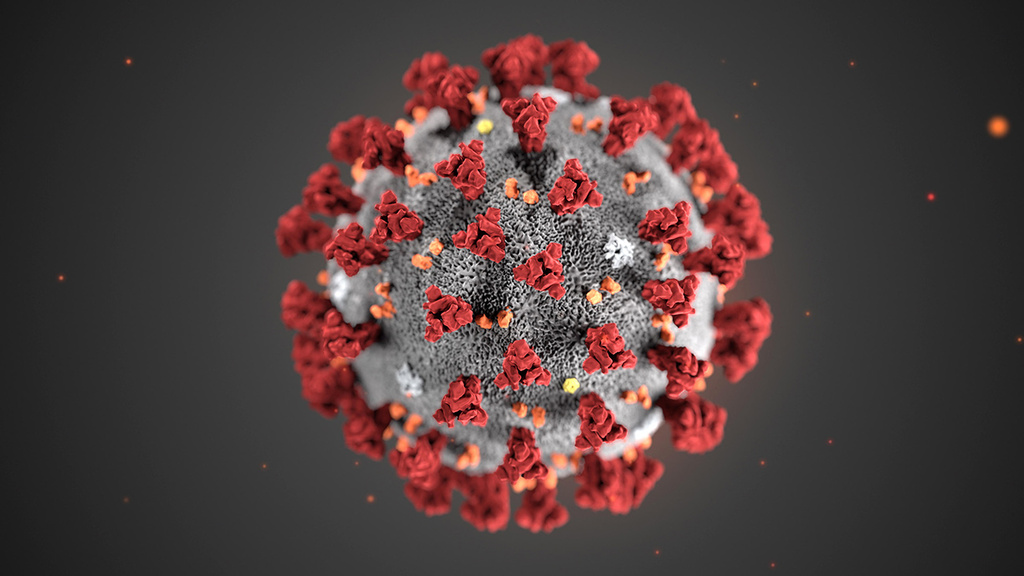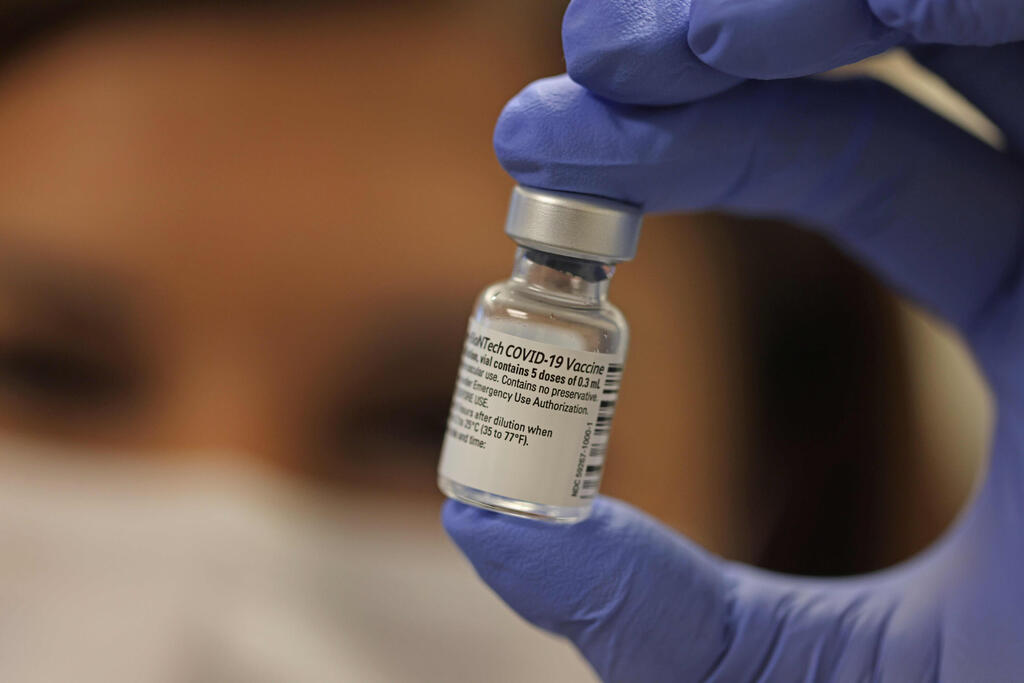I, like many others, a year ago thought this was just another flu - but the rest is history.
Reaching the point where we finally can vaccinate against the coronavirus will not leave anyone indifferent - an historic feat in and of itself.
5 View gallery
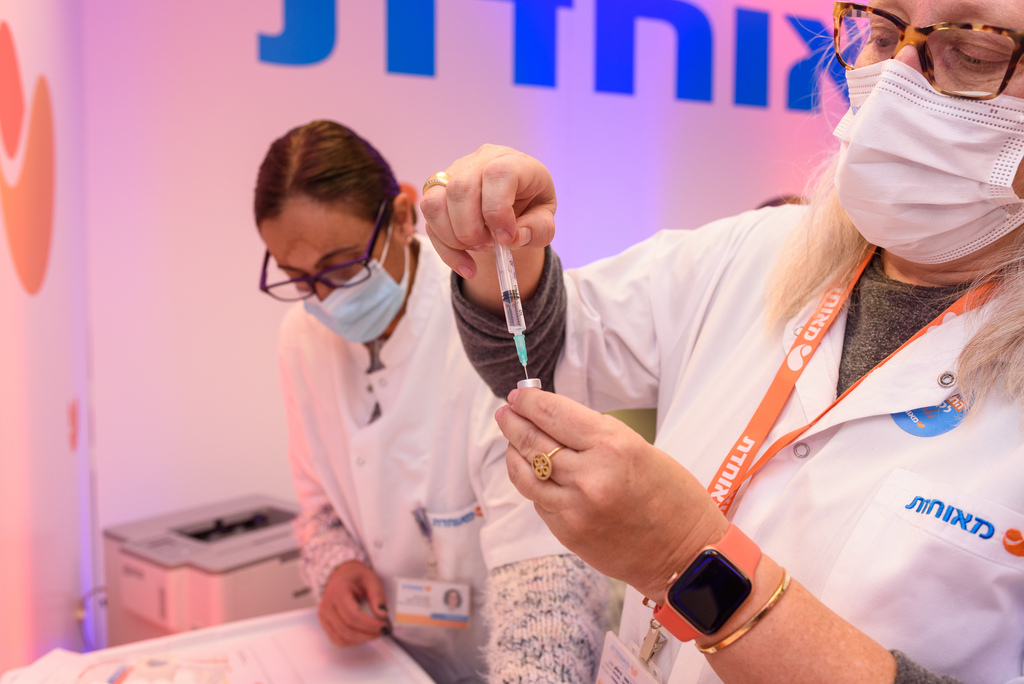

A health worker prepares to administer the coronavirus vaccine
(Photo: Shalev Shalom)
There are those who voice criticism over the speed at which the vaccine was developed, but I beg to differ.
Unlike other vaccinations, endless resources were poured into this process and bureaucracy has been cut significantly without skipping any phases of clinical trials.
The mRNA technology used in the Pfizer and Moderna jabs has been tested on humans for the past decade without any adverse side effects.
COVID-19's cousins, the SARS and MERS viruses, have been dissected through and through, revealing much about their weaknesses.
Plus, COVID's high infection rate also contributed to achieving results quickly in clinical trials.
Almost any kind of medical intervention clearly entails some risk - in an ideal world we might have waited another two years, five years or even 30 years for the vaccine - but we do not live in an ideal world.
In the past year, we had to deal not only with coronavirus, but also with its devastating consequences - health tragedies, lockdowns, loneliness, domestic violence, closure of the education system, economic disasters that take a heavy toll every day, and the list, unfortunately, goes on and on.
Nevertheless, expert panels weighed the vaccines' risks carefully against its benefits and decided to grant their use an "emergency approval" based on all the data we have available.
The vaccines have been shown to have no significant side effects in the immediate term and even follow-up examinations since the start of clinical trials nine months ago did not show any.
No one can predict the long-term side effects of the vaccines (if there are any), just as no one can predict what effects coronavirus will have in a few years on those who contracted it.
I wouldn't lie if I said that sometimes I think that in 50 years people will say: "How naïve were they back in 2020, thinking they could develop a safe vaccine in less than a year."
But then, another scenario unfolds in my mind: "The coronavirus crisis led to a great revolution, bringing new approaches to vaccination that saved millions and put an end to pandemics."
Inoculation against infectious diseases has been one of modern medicine's most significant revolutions for the past 200 years, and it has proven it could effectively prevent morbidity, suffering and death.
5 View gallery
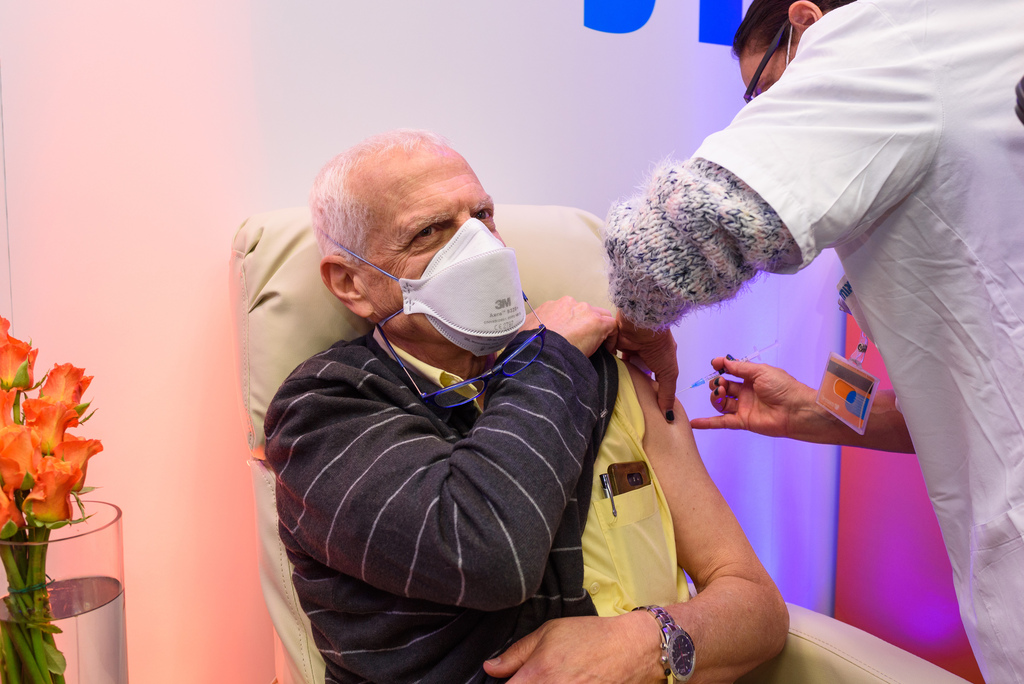

A healthcare worker administers the coronavirus vaccine in Jerusalem
(Photo: Shalev Shalom)
Unfortunately, there will always be those who would rather get sick than get the shot, invoking claims of aluminum residues, vaccines causing autism in toddlers, and even mentioning Bill Gates and the New World Order.
These are people with a short memory who have gotten used to all the good vaccines provide. They are welcome to read a bit about the horrors of polio and smallpox throughout history.
And yet, this deluge of fake news that permeates throughout social media at a breakneck pace is only making everything so much harder. This is another pandemic that we unfortunately don't have a real vaccine for - besides education and confidence in knowledgeable sources such as physicians and health experts.
The choice to get vaccinated is a personal one and everyone should be provided with as much reliable and accurate information as possible about the vaccine, its effects and its significance - both on a personal and on a social level as we contribute to creating herd immunity that will protect those who will not get immunized.
5 View gallery
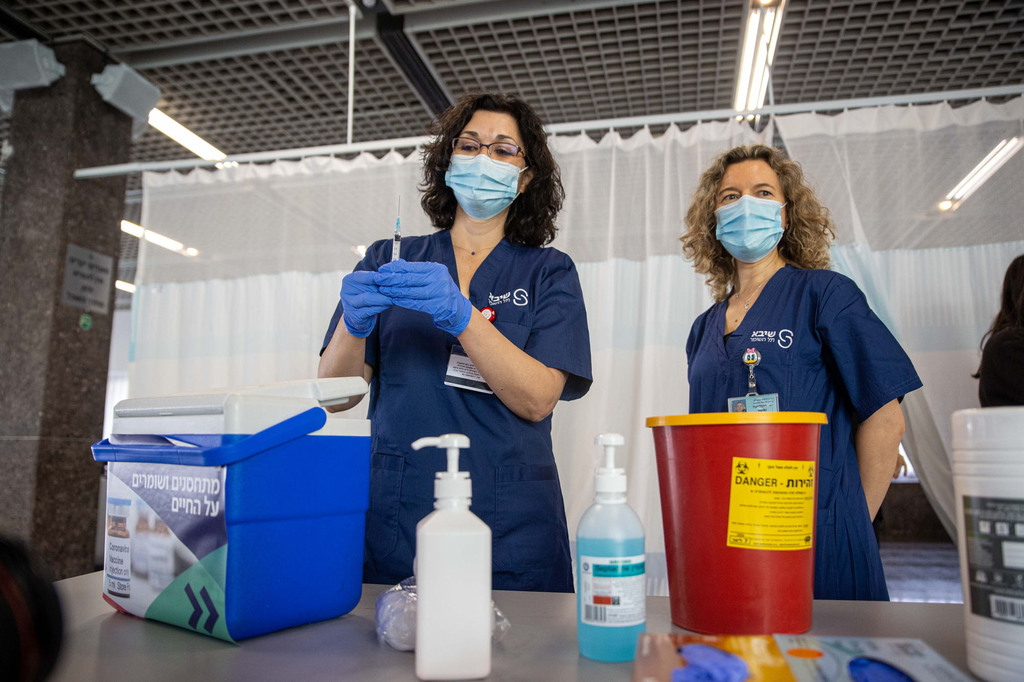

Health workers practice administering the coronavirus vaccine at Sheba Medical Center
(Photo:Tal Shahar)
A tiny virus has managed to bring most of the world to its knees. It has proven to us that we still have much to learn, while continuing to drop more and more surprises on a daily basis.
It is my fervent hope that these vaccines we let us give the virus its just deserts, and reclaim some of that old, boring routine we have grown to miss so much.
And let us declare victory in World War C.
Prof. Cyrille Cohen is Vice Dean at the Faculty of Life Sciences at Bar-Ilan University


